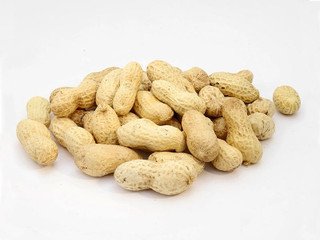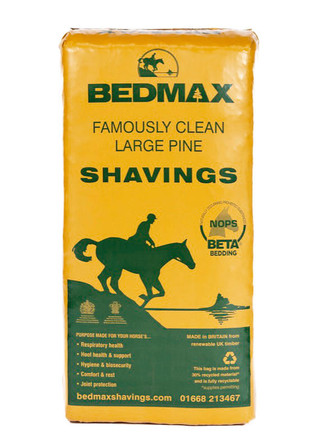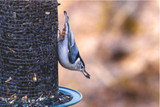The top garden birds and their favourite food
Most of us look forward to spotting some feathered garden visitors from time to time, but it can be difficult to know how to take care of all the different types of birds that we may spot. Although some things, such as ensuring an adequate water supply, are important for all birds, it’s also a good idea to find out what birds like to eat and how this differs from species to species.
We’ve put together a list of birds and their food preferences using the results of the RSPB’s big garden birdwatch, to help you choose the most suitable wild bird food for your feathered friends. Take a look below!
Sparrow
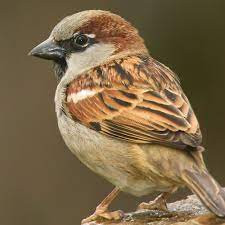
Sparrows are the most common garden bird in the UK, with over five million breeding pairs in the UK. Sparrows are not fussy eaters and will happy feast on a range of food, including discarded food waste from your kitchen.
However, to keep these beautiful birds healthy it’s important to feed them whole foods that will provide them with the energy they need. Bird seed mixes are a great option for sparrows - look for types that include millet and sunflower seed for optimum nutrition. Our wild bird seed mix is a perfect choice to look after your garden sparrows.
Starling
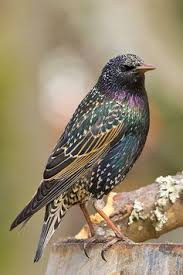
Another commonly spotted bird is the starling, These small birds love to eat a range of insects all year round, and they have a specially adapted beak to help them grab insect from under the ground. If you’d like to put out food for starlings, opt for our dried mealworms and dispense them from a mealworm feeder. In the winter, starlings can tire easily due to the cold weather, so providing high-energy foods such as suet can help them to survive harsh winters.
Blue tit
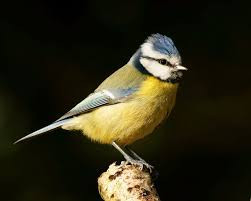
Blue tits generally tend to travel in flocks, so you may see as many as 20 tits at once in your garden. Blue tits have great gymnastic skills and usually prefer to eat from bird feeders or platforms. They love bird seed mixes, but particularly enjoy peanuts. Make sure to choose peanut granules during the spring and summer months so fledglings aren’t able to choke on them.
Blackbird
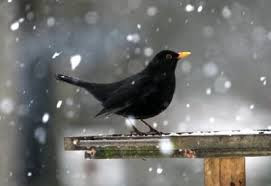
Blackbirds can be spotted in gardens and parks throughout the year, and are a staple of British wildlife. Blackbirds feed mainly on the ground, scavenging for insects and bugs to eat. If you have lots of blackbirds in your garden try putting out mealworms, particularly in the winter when food sources are in short supply.
Woodpigeon

Woodpigeons are easily spotted thanks to their size and distinctive ‘waddle’. These birds eat mainly dry food, so require a constant source of drinking water to help them stay hydrated. As woodpigeons are happy to eat just about anything, a general wild bird food mix is a great option to give these birds a helping hand.
Goldfinch
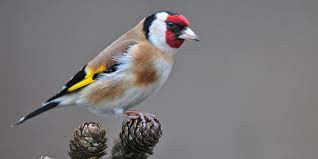
Goldfinches are welcome visitors to any garden thanks to their beautiful colours and pleasant song. They adore niger seed, and it is recommended to provide these in a special niger feeder to make sure they are able to access it easily and without competition from pests.
Great tit
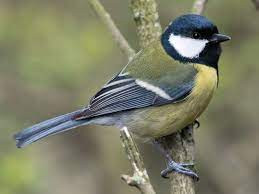
Much like the other members of the tit family, the great tit loves peanuts and other bird food mixes. Interestingly though, a great tit can eat up to 44% of its body weight in sunflower hearts, particularly during winter, making it a great option for you to provide for your garden birds.
Robin
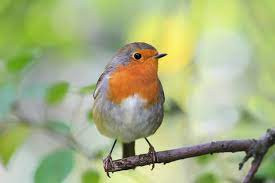
The lovable robin redbreast loves to eat a range of foods, including fruits, seeds, sunflower hearts and even mild cheeses! Despite this, their absolute favourite snack is the mealworm, which can be found in our specialist robin food mixture.
Chaffinch

The chaffinch loves peanut pieces and sunflower hearts, particularly during the winter months. It’s advised that you serve these from a feeder or from a bird table, to prevent rats and other garden pests from taking the food.
By putting out the correct foods for your garden birds, you’re sure to have many more feathered visitors in the future. Make sure to log any sightings you have on the BirdSpotter App!
Explore Popular Articles
-
Should You Feed Birds Every Day? A Complete Guide on Feeding Birds
15th Dec 2025At Kennedy Wild Bird Food, we believe that understanding how to care for garden birds is as importan
-
Top 11 Yellow Birds in Britain and the UK to Attract in Your Garden
15th Dec 2025Yellow birds bring a splash of colour and cheer to any garden. Observing these birds can be both rel
-
How Sunflower Seeds Can Improve Your Bird's Health
14th Jun 2024Birds are quite attracted towards sunflower seeds, but have you ever wondered about sunflower seeds'









